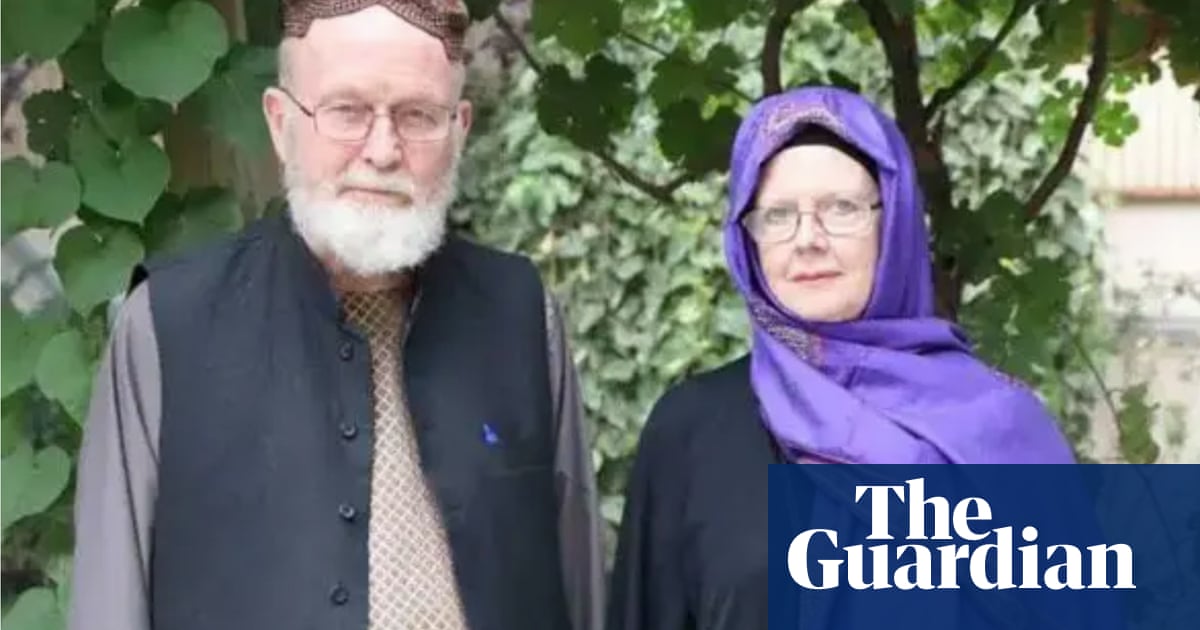MPs have taken a historic step toward legalising assisted dying in England and Wales by backing a bill that would give some terminally ill people the right to end their own lives.
Campaigners in favour of the terminally ill adults (end of life) bill said it was a significant move towards giving people more choice over the way they die, after the Commons backed the bill by 330 votes for to 275 against.
Brought by the Labour MP Kim Leadbeater, the bill would give terminally ill adults with less than six months to live the right to die once the request has been signed off by two doctors and a high court judge.
It still has further steps to go through before becoming law, and supporters believe assisted dying will not be an option for those with a terminal diagnosis for at least three years.
The vote, which is the first on the issue for almost a decade, split the political parties and the cabinet. Keir Starmer and Rachel Reeves voted in favour alongside prominent opposition MPs such as Rishi Sunak and Jeremy Hunt. Those voting against included Angela Rayner, the deputy prime minister; Wes Streeting, the health secretary; Ed Davey, the Lib Dem leader; and Nigel Farage, the Reform leader.
During the five-hour debate, the Commons heard impassioned pleas on both sides. MPs recounted personal experiences of illness and death, and appeals they had heard from their constituents on assisted dying.
Esther Rantzen, who galvanised the debate on assisted dying last December after revealing she had lung cancer, said the bill offered everyone “equal choice”.
She said: “Those who don’t want an assisted death and don’t want to take part in providing assisted dying can opt out of it, don’t have to do it, don’t choose to end their lives that way. So it offers everyone equal choice, whatever their religion.”
Kit Malthouse, who made an impassioned speech in favour of the legislation, said parliament had taken a “significant first step” and called for the government to now dedicate more parliamentary time to consideration to the bill.
According to recent polling, three-quarters of the public back a change in the law.
Opponents of the move expressed disappointment and were downbeat about the prospects of it being significantly changed at later stages of its passage through parliament to increase safeguards against the risk of coercion.
Labour’s Diane Abbott, the longest-serving female MP, who spoke and voted against the change, said: “I’m disappointed that the bill is going forward. But many of the people that spoke in favour of the bill seem to think that it can be drastically changed in committee. It’s not going to be drastically changed in committee, and the question for them is: what do they do at report [stage]?”
Figures involved in the hospice and end-of-life care sector who are neutral on the issue called for urgent funding and reform of palliative care to make sure patients have a real choice when dying.
The bill must pass several more hurdles in parliament and will not be brought before MPs again until April. The government is now likely to assign a minister to help work on the bill, without formally giving its support. After that it must be voted on again by MPs and go through the House of Lords. Should it become law there would be a two-year implementation period.
Out of Labour MPs, there were 234 were voted in favour and 147 against. Most of the cabinet supported the legislation, including Yvette Cooper, the home secretary; Liz Kendall, the work and pensions; and Heidi Alexander, the new transport secretary.
Six cabinet ministers were among those voting against the bill: Rayner, Streeting, David Lammy, the foreign secretary; Shabana Mahmood, the justice secretary; Bridget Phillipson, the education secretary; and Jonathan Reynolds, the business secretary.
Streeting had infuriated some supporters of the bill by speaking out against assisted dying before the debate and ordering work on the potential costs of the legislation to the NHS. The health secretary is not expected to now take the lead in working on the legislation at its next stage.
after newsletter promotion
The Conservatives, Liberal Democrats, Reform and Plaid Cymru were also divided on the vote, which was considered a matter of conscience and therefore not subject to whipping.
Marie Tidball, a Labour MP who was born with a congenital disability that affects all four limbs, said she would vote in favour of the bill but push for considerable amendments at later stages.
She recalled her experience of having major surgery aged six and the extreme pain she went through. “I was in body plaster from my chest to my ankles, in so much pain and requiring so much morphine that my skin began to itch. I remember vividly lying in a hospital bed in Sheffield children’s hospital and saying to my parents: ‘I want to die, please let me die,’” she said.
“That moment also gave me a glimpse of how I would want to live my death just as I have lived my life, empowered by choices available to me. So often, control is taken away from disabled people in all sorts of circumstances.”
Malthouse, a former education secretary, rebutted the argument that assisted dying would add to the burden on the NHS and the courts. “Are you seriously telling me that my death, my agony, is too much for the NHS to have time for? Is too much hassle?” he said. “That I should drown in my own faecal vomit because it is too much hassle for the judges to deal with?”
Opponents of the bill said it would fundamentally change the relationship between the state and its citizens, and between doctors and patients. They argued the bill had been rushed and the safeguards for vulnerable people were insufficient.
Jess Asato, a Labour MP, said that while she might one day want assisted dying for herself, protecting vulnerable people should be paramount. “Abuse surrounds us,” she said. “There is no mandatory training for judges on coercive and controlling behaviour, nor is there effective training for medical professionals … Those who are coerced are often isolated from friends and family. So if you are not required to tell friends or family that you are opting for assisted dying, who will raise the alarm?”
Meg Hillier, the chair of the Treasury committee, cried as she recounted the experience of her teenage daughter being admitted to hospital with acute pancreatitis. “I did not know for five days, in fact many months, whether she would live or die … But I saw what good medicine can do that palliated that pain,” she said.
She urged MPs to reject the bill: “If we have a scintilla of doubt about allowing the state that power, we should vote against this today.”
James Cleverly, the former home secretary, asked: “If this is such a good thing to alleviate pain and suffering, a right that we should be proud to pass, why are we denying it to children?”
After the vote, Charlie Falconer, a Labour peer who has been an outspoken supporter of the bill, hugged the Commons leader, Lucy Powell, in parliament’s central lobby and said: “What a result.”

 2 months ago
49
2 months ago
49













































